GREENES development of green energy competences, for energy stability
WHY GREENES?
Digitalization in the renewable energy sector plays a key role in the optimization, monitoring and management of renewable energy sources. By developing a set of necessary competencies within the environmental program, the quality and diversity of professional staff who can respond with knowledge behind the calls of climate change and the current energy crisis will be strengthened.

GOALS
General and specific objectives
General and specific goals as well as the results of the GREENES project, are directed towards students, teachers, professionals, decision-makers at the local, regional and national level and young people in general. Through the improvement of competencies, conditions will be created for the creation of professionals capable of responding to the demands of the contemporary energy market.
Aspect of digitization
Digitalization is the bearing factor of the GREENES project and runs through program content, innovation in the teaching process, development of a virtual center of exchange of knowledge experience and examples of good practice in the form of an interactive platform, lifelong learning courses LLL, up to dissemination methods and campaign implementation mechanism gives the opportunity to partners as well as all target groups to strengthen their capacities in the field of digitalization, both personal (students, teachers, professionals) and institutional (digitization of procedures, digitization of communication, and society as a whole)
New competencies
By improving the existing competences of students at master studies in the field of environmental protection, the elements of digitalization of the energy sector will be realized, through the application of ICT technologies such as block chain, IOT, AI VR, etc. Experts will be created ready for the current challenges and needs of the energy sector. In this way, the first step will be made in raising the capacity of institutions and economies in the field of strengthening and saving energy, raising the level of energy efficiency, as well as energy transition in terms of transition to various forms of renewable energy sources (biomass, incinerators) and will provide an appropriate contribution to reducing the energy dependence of all three countries on energy imports.
RENEWABLE ENERGY

Digitalization improves energy production from biomass, increases efficiency and reduces negative environmental impacts. The use of digital technologies provides an opportunity for the expansion and greater integration of biomass into the energy mix, contributing to a sustainable energy sector and reducing greenhouse gas emissions.
Biomass Energy
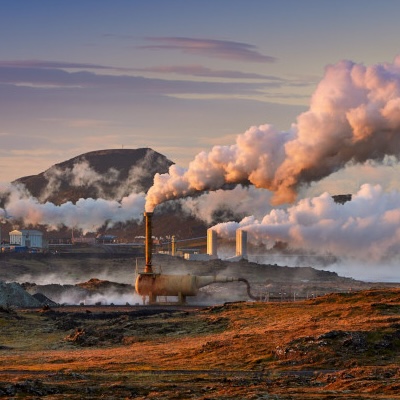
Digitalization allows constant monitoring of the parameters of geothermal wells, including temperature, pressure and fluid flow. This data enables better management and optimisation of well operations, increasing energy production and reducing maintenance costs.
Geothermal Energy
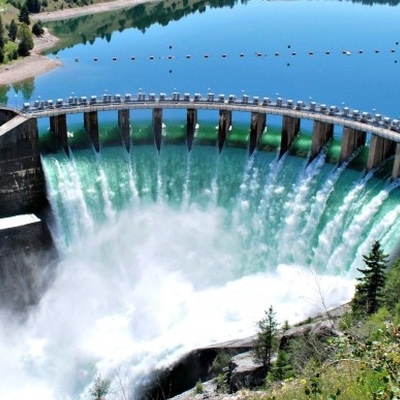
Digitalization provides an opportunity to improve the performance, efficiency and reliability of hydropower systems. This integration contributes to a sustainable and stable electricity supply, while reducing negative environmental impacts.
Hydropower
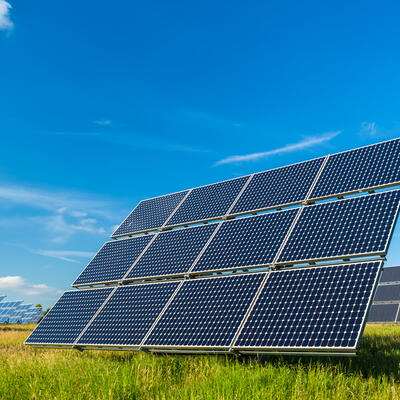
Digital sensors allow constant monitoring of the electricity production of photovoltaic panels in real time. This allows precise monitoring of panel performance and identification of problems or losses in production. Based on these data, it is possible to optimize system settings to increase the efficiency and utilization of solar panels and determine the level of impact on environmental protection.
Solar Sources
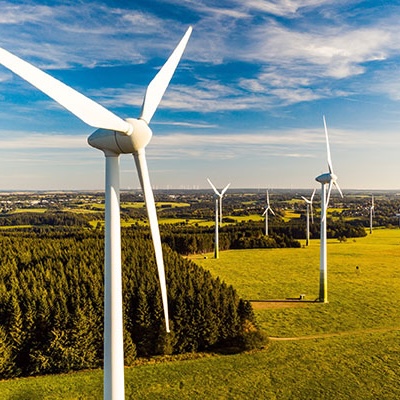
The integration of wind farms into smart grids enables better management and integration with other energy sources. This enables balancing grid supply and demand, reducing losses and improving grid stability.
Wind turbines
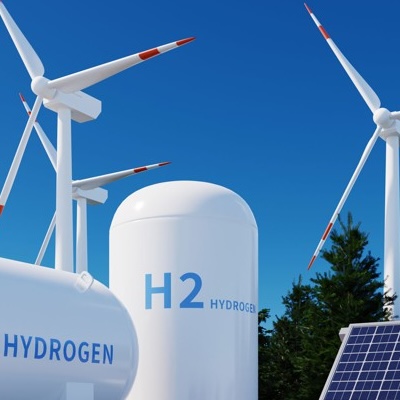
Digital technologies enable better management of hydrogen production processes, either through electrolysis, methane-steam reaction (reformation), or other methods. These technologies enable precise monitoring of process parameters and optimization of production in order to increase efficiency and reduce costs.




